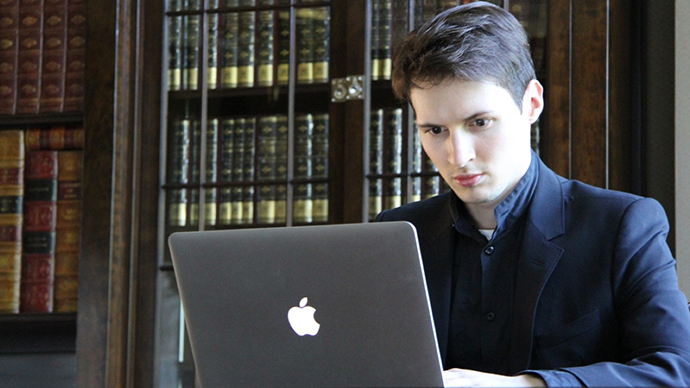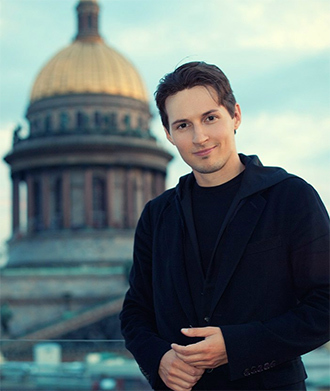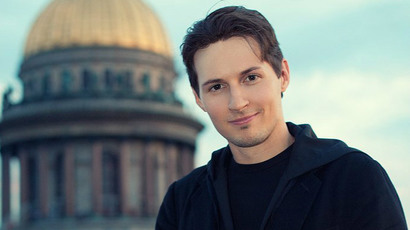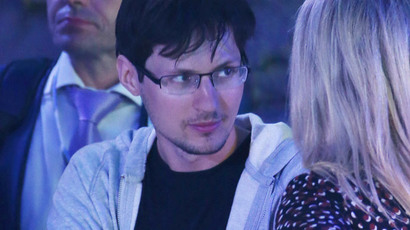Self-exiled former CEO of Russia’s Facebook takes business partners to court in US

Pavel Durov, ex-CEO of Vkontakte (VK), Russian Facebook, has filed a case against former business partners at United Capital Partners (UCP) in a New York court. Durov accused them of conspiring to obtain shares in his new WhatsApp spin-off Telegram.
According to the lawsuit, partners at UCP conspired to take control of Telegram, as well as Digital Fortress and Pictograph, which violates the US Racketeer Influenced and Corrupt Organizations Act (RICO),Vedomosti reports.
UCP claims VK is the owner of Telegram, but Durov says he used his own funds to develop and launch Telegram. The messaging service has 35 billion users, and has seen its popularity boosted since FacebookboughtWhatsApp in February for $18 billion.
The alleged bribes, reported by the paper, are $6.7 million promised to UCP'sIlya Perekopskyand Aksel Neff was given more than $10,000.
Previously Neff and Perekopsky were the front men for all three companies, but now they are owned by UCP.
Other defendants listed are VK's largest stakeholder, including UCP's Ilya Sherbovich, Victoria Lazareva and Yuri Kachuro.
Kachuro said the case is based on “obvious lies” and that the deal with Neff was square and carried out under the supervision of lawyers.
“Neff had the right to sell the business, and we have the right to buy it. We are ready to prove this to any interested parties,” Kachuro said, as quoted by Vedomosti.

USM Holdings, which is owned by Russia’s richest man Alisher Usmanov, has taken sides with Durov, and says that UCP’s actions were “not only immoral but illegal,” a USM representative said, Vedomosti reported.
“Taking someone else’s intellectual property and then trying to simultaneously play the role of the judge and executioner as UCP did by purchasing parts of the company under the pretext it will belong to Vkontakte,” the representative said.
The USM representative added that the company has no claim on Durov’s side projects outside of Vkontakte, but will be ready to invest in his products if they go public.
Durov wants the court to grant him compensation for losses, and the right to be recognized as the owner of all the assets of the Telegram mobile messenger application.
The case was filed on April 30, a week after he announced he was leaving Russia and never coming back after his messy exit from the company he built.
Sherbovich was reportedly unhappy with Durov’s role as CEO because he thought Durov was spending too much time developing his new projects, he wrote in a letter to UCP partner, published by Forbes Russia.
UCP suspects Durov of malpractice in his new company Telegram, and believe he violated employee contracts and intellectual property rights associated with VK.
Shares, swaps and desire for data
The 29-year old entrepreneur founded VK in 2006 and permanently bowed out as the company’s CEO on April 16. He sold his 11.99 percent share in the company to Mail.Ru Group in January, which gave it a controlling 51.99 stake in the social network, which is even more popular than Facebook in Russia.
Sherbovich’s UCP is VK’s second-largest shareholder, and owns 48 percent of shares.
After Durov left the country and the company, he publicly said that Russia is “incompatible with internet business at the moment.”
Previously Durov said Russia’s Security Service required VK provide information on individuals who attended protests in Moscow in 2011, but he refused. Mail.Ru now has supervision over data from the biggest Russian social network.
A new law that comes into effect on August 1 will make it imperative for all social networks and email services operating in Russia to collect and store personal data on all users inside Russian territory, including foreign companies like Facebook, Google, and Microsoft.
Mail.Ru, Yandex, and now Sputnik, are all domestic search engines, which handle more than two thirds of Russian language searches, beating Google.














